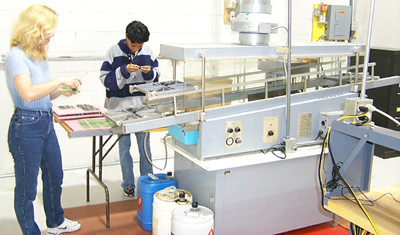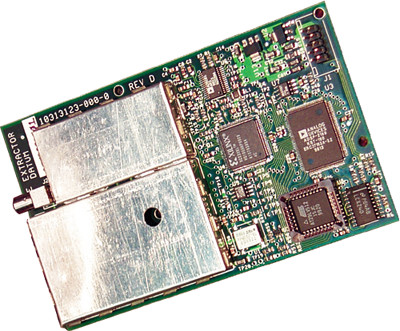
|
For over 30 years, Berkeley Varitronics Systems has provided
design and consulting services for the telecommunications
industry. We cover a wide range of disciplines and client
needs ranging from programming, DSP software, hardware
production engineering to light manufacturing. BVS'
inter-disciplined team thrives on technical challenges and
works to find creative and sometimes novel solutions. We
specialize in RF, video, audio, high-speed digital, analog
and signal processing technologies. In addition to its own
range of proprietary wireless test and measurement products,
BVS has designed and manufactured over 200 different
products and systems as OEM consultants to major
corporations worldwide. Our staff implements innovative and
practical solutions for today's engineering problems. BVS is
a "can do" organization with an open, "teamwork climate". We
use each staff member's full ability, knowledge and
experience to work through problems and to implement optimal
solutions. This attitude (when coupled with our CDMA
experience in RF, FIR, code generators, correlators and
ASICs) has resulted in the company's steady sales growth
over the last 10 years.
|
 |
 |
Berkeley manufacturing methods are designed to control quality and
fast turn-around for customers' products. We utilize automated
surface mount (SMT) and through-hole printed circuit board assembly
techniques which provide quick (sometimes in just 48 hours) delivery
of prototype or small production runs. Because of our internal
manufacturing experience, we are sensitive to costs,
manufacturability, parts availability, test-ware and other critical
elements. We make not just a design that works, but one that can be
made efficiently and is reliable. Hardware design and prototyping
are expedited through the use of in-house CAD tools, including
schematic capture, PC board layout, mechanical and LSI gate array
design and simulation.
|
|
This past year, BVS has completed work on CDMA technology for Datum,
Inc. that allows for inexpensive, indoor GPS antenna
synchronization. A timing extractor for precise clocking of
microcells and base stations are being developed by Berkeley for
Austron in initial production runs of 10,000 units. A push towards
high-bandwidth services has led to this new design which uses the
CDMA air interface as the traceable link to the GPS. The antennaless
timing engine is approximately the size of a standard computer modem
capturing the pilot signal emitted by CDMA networks and tracing that
back to the GPS satellite. The advantages of such a system for the
industry range from its low cost (no licensing fees or antenna
maintanence required) to its reliability (downtime is <2 seconds per
year). Furthermore, this technology has been funneled into
Berkeley's latest product innovations, the Hummingbird and Raven.
Both require no GPS antenna because all timing data is acquired by
demodulating the base station's sync channel.
|
 |